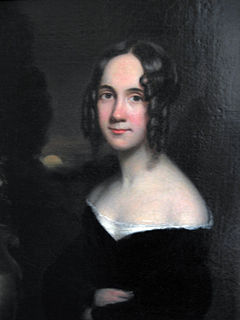A Quote by Marcus Tullius Cicero
The most evident difference between man and animals is this: the beast, in as much as it is largely motivated by the senses and with little perception of the past or future, lives only for the present. But man, because he is endowed with reason by which he is able to perceive relationships, sees the causes of things, understands the reciprocal nature of cause and effect, makes analogies, easily surveys the whole course of his life, and makes the necessary preparations for its conduct.
Quote Topics
Able
Analogies
Animals
Beast
Because
Between
Cause
Cause And Effect
Causes
Conduct
Course
Difference
Easily
Effect
Endowed
Evident
Future
His
Largely
Life
Little
Lives
Makes
Man
Most
Motivated
Much
Nature
Necessary
Only
Past
Perceive
Perception
Present
Reason
Reciprocal
Relationships
Sees
Senses
Surveys
Things
Understands
Which
Whole
Related Quotes
The children's writer not only makes a satisfactory connection between [the writer's] present maturity and his past childhood, he also does the same for his child-characters in reverse - makes the connection between their present childhood and their future maturity. That their maturity is never visibly achieved makes no difference; the promise of it is there.
Memory is therefore, neither Perception nor Conception, but a state or affection of one of these, conditioned by lapse of time. As already observed, there is no such thing as memory of the present while present, for the present is object only of perception, and the future, of expectation, but the object of memory is the past. All memory, therefore, implies a time elapsed; consequently only those animals which perceive time remember, and the organ whereby they perceive time is also that whereby they remember.
As the mental endowment of a man varies with the organisation of his accumulated experiences, the better endowed he is, the more readily will he be able to remember his whole past, everything that he has ever thought or heard, seen or done, perceived or felt, the more completely in fact will he be able to reproduce his whole life. Universal remembrance of all its experiences, therefore, is the surest, most general, and most easily proved mark of a genius.
Some determined advocates of the vegetable system maintain, that the teeth and stomach of the monkey correspond, in structure, very closely with that of man, yet it lives on fruits - therefore if man followed nature, he would live on fruits and vegetables. But though the anatomical likeness between man and monkeys is striking, yet it is not complete; the difference may be and doubtless is precisely that which makes a difference of diet necessary to nourish and develope their dissimilar natures. Those who should live as the monkeys do would most closely resemble them.
One of the most revolutionary concepts to grow out of our clinical experience is the growing recognition that innermost core of man's nature - the deepest layers of his personality, the base of his 'animal nature' - is basically socialized, forward-moving, rational and realistic... He is realistically able to control himself, and he is incorrigibly socialized in his desires. There is no beast in man, there is only man in man.
Plants, again, inasmuch as they are without locomotion, present no great variety in their heterogeneous pacts. For, when the functions are but few, few also are the organs required to effect them. ... Animals, however, that not only live but perceive, present a great multiformity of pacts, and this diversity is greater in some animals than in others, being most varied in those to whose share has fallen not mere life but life of high degree. Now such an animal is man.
Love is a very contradiction of all the elements of our ordinary nature -- it makes the proud man meek -- the cheerful, sad -- the high-spirited, tame; our strongest resolutions, our hardiest energy fail before it. Believe me, you cannot prophesy of its future effect in a man from any knowledge of his past character.
Whatever withdraws us from the power of our senses; whatever makes the past, the distant, or the future, predominate over the present, advances us in the dignity of thinking beings. Far from me, and far from my friends be such frigid philosophy as may conduct us indifferent and unmoved over any ground which has been dignified by wisdom, bravery, or virtue. That man is little to be envied whose patriotism would not gain force upon the plain of Marathon, or whose piety would not grow warmer among the ruins of Ionia.











































